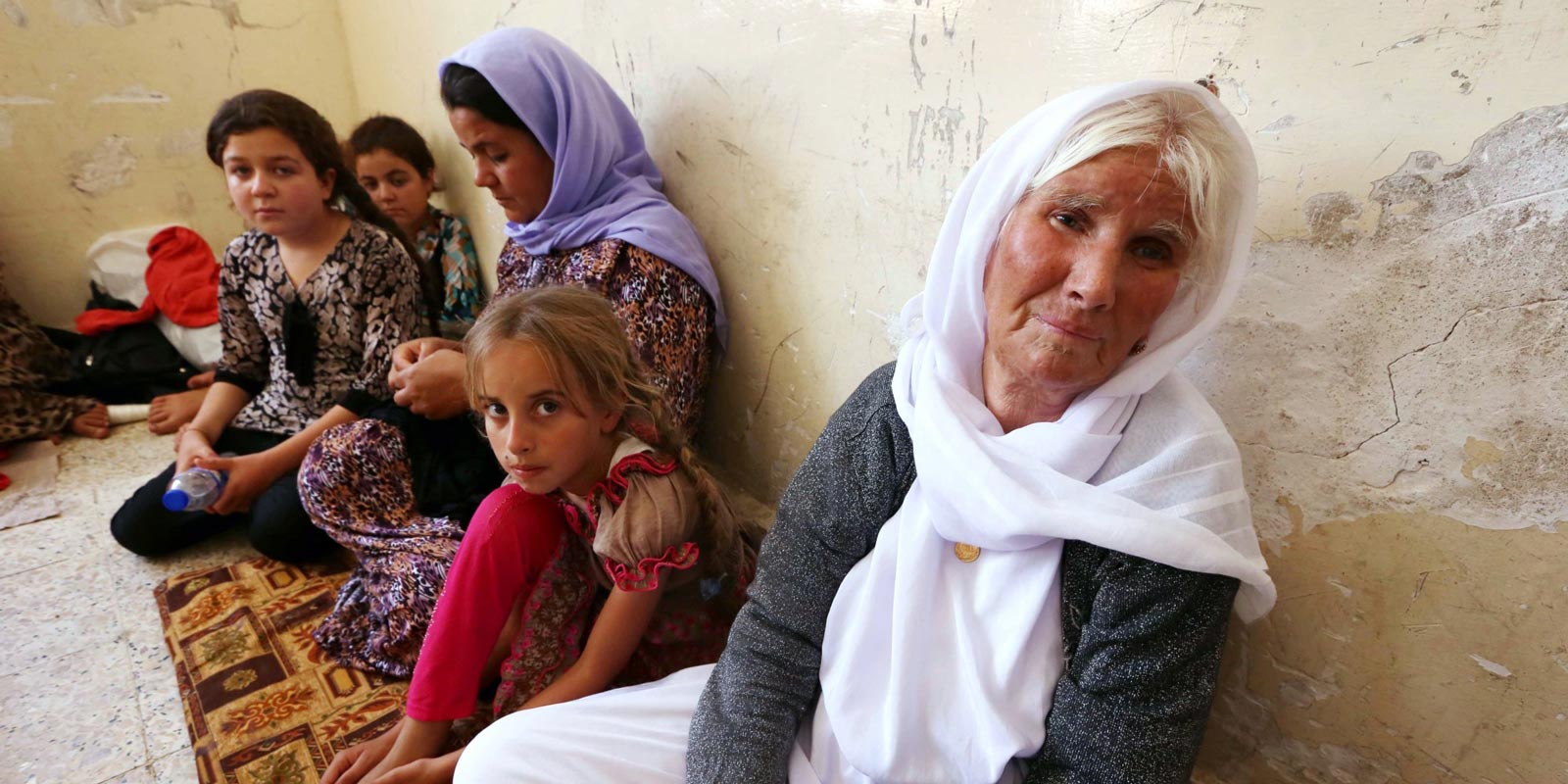by Daniel Williams
In the part of his Sept. 10 speech on confronting the Islamic State that probably drew the least attention, President Obama mentioned the need to help Christians and other minorities, expelled from cities and villages in northern Iraq, return from where they came. “We cannot allow these communities to be driven from their ancient homeland,” he said.
Obama got that wrong. Christians, of whom around 120,000 have taken refuge in Iraqi Kurdistan, will not be going home even if their tormentors suddenly disappear.
I spent 10 days talking with Christian refugees in Irbil, the capital of the northern autonomous region of Kurdistan, this month, and they are adamant they will not be returning to Mosul and nearby towns on what is known as the Nineveh Plain.
It is not simply that these Christians have gone through tremendous trauma. It is not only because they lost everything, including their homes and businesses, and in some cases spent days and even weeks in detention while being badgered to convert to Islam, where they saw babies taken from mothers’ arms to be held for ransom and busloads of young people ferried off into the unknown.
Nor is it because their neighbors, in Mosul but especially in the countryside, welcomed and even joined fighters from the Islamic State, pointed out the homes of minorities and let them know which ones were wealthy.
No, it is because, for Christians in Iraq, the past three months have been the climax of 11 years of hell. We Americans have short memories (that goes for you, too, in the “Bush Was Right” crowd), but it’s worth noting that Christians began having serious problems within a year after the fall of Saddam Hussein in 2003. Sometimes it was the work of al-Qaeda, sometimes Sunni insurgents pining for the return of Sunni control of Iraq. Sometimes it was Shiite militias fighting the Sunnis but finding time to persecute Christians.
First came assaults on stores that sold alcohol. Then, in August 2004, bombs were placed outside five churches in Baghdad and Mosul. Eleven people died. Two more churches were bombed in November, and Christians began to flee to Kurdistan, Jordan and Syria. Since then, at least 60 churches in the country have been bombed. The latest was in Baghdad on Christmas Day last year.
Priests and bishops became particular targets, in order to deliver a message to their flock that no one is safe. In Mosul in June 2007, gunmen shot dead a Chaldean Catholic priest and three deacons because the priest refused to convert to Islam. The next year gunmen kidnapped Mosul’s Chaldean archbishop, Paul Rahho, and killed his driver and two bodyguards. The abductors stuffed Rahho into the trunk of a car, from where he was able to call a colleague by mobile phone and instruct the church not to pay ransom. He was found dead a few days later in a shallow grave.
Attacks on lay Christians were continuous. Women received threatening messages demanding that they stop working. Families received death threats attached to demands for money called “daftar,” slang for $10,000. Children were taken and held for ransom. Both Sunni and Shiites, though busy with what amounted to a civil war, found time to attack and expel Christians from the Baghdad suburb of Dora.
Article continues after the slideshow
SLIDESHOW: Who Are The Yazidis, And Why Does ISIS Want To Kill Them? Read Special Report HERE
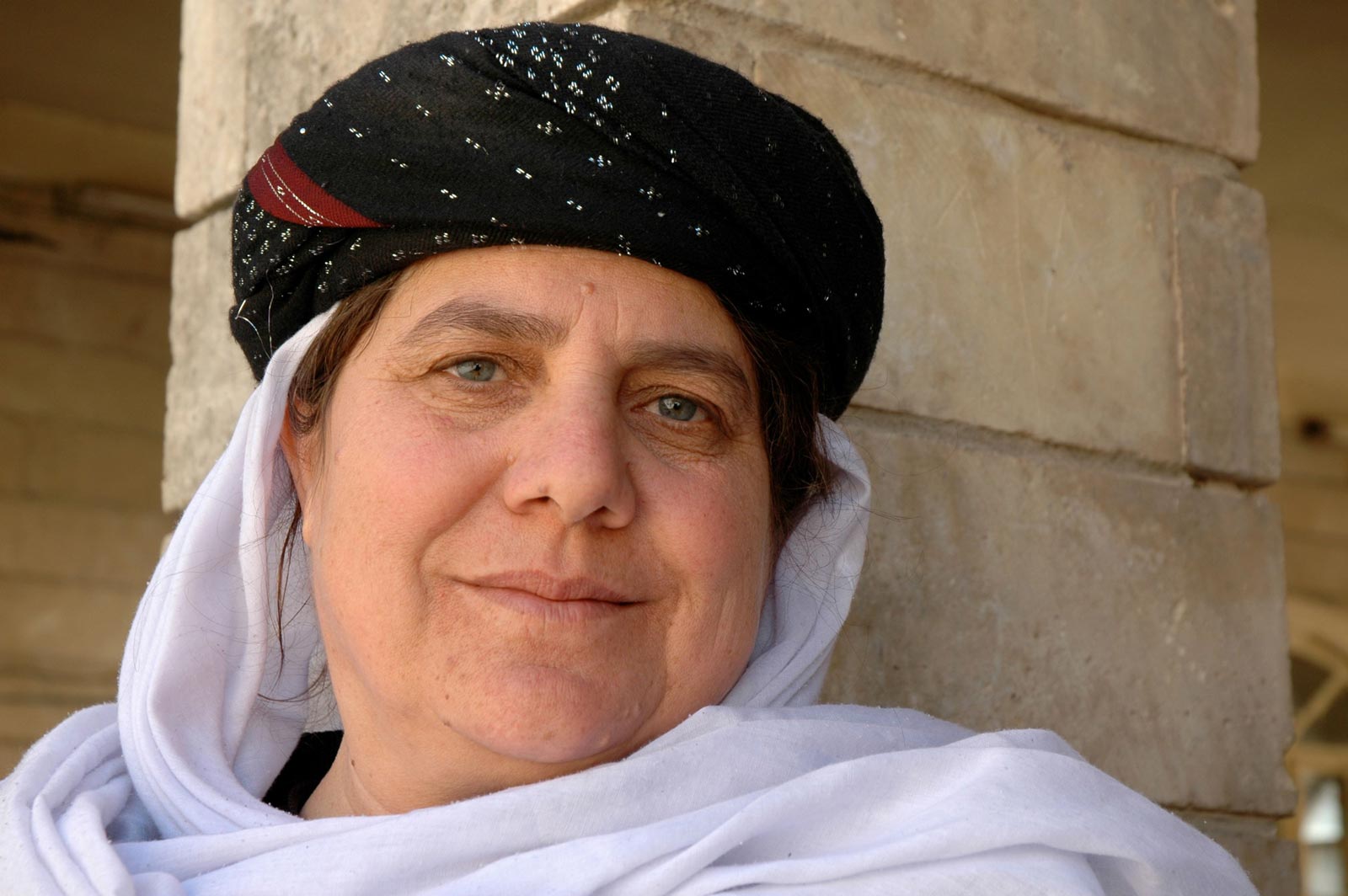
A Yazidi woman (Photo Credit: Evangelical Movement of Wales)
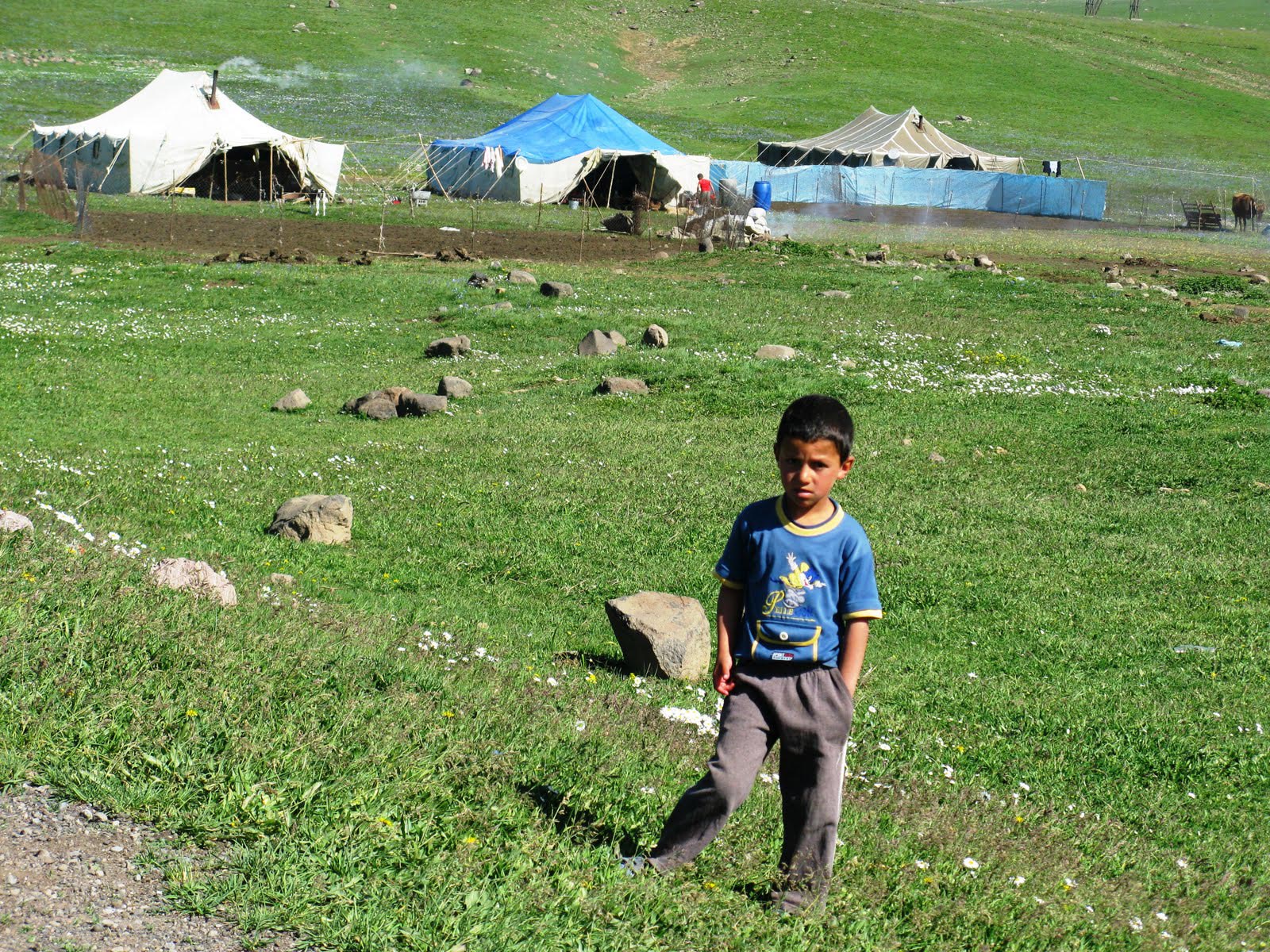
A Yazidi boy in their summecamp. (Photo Credit: Jesper's Blog)
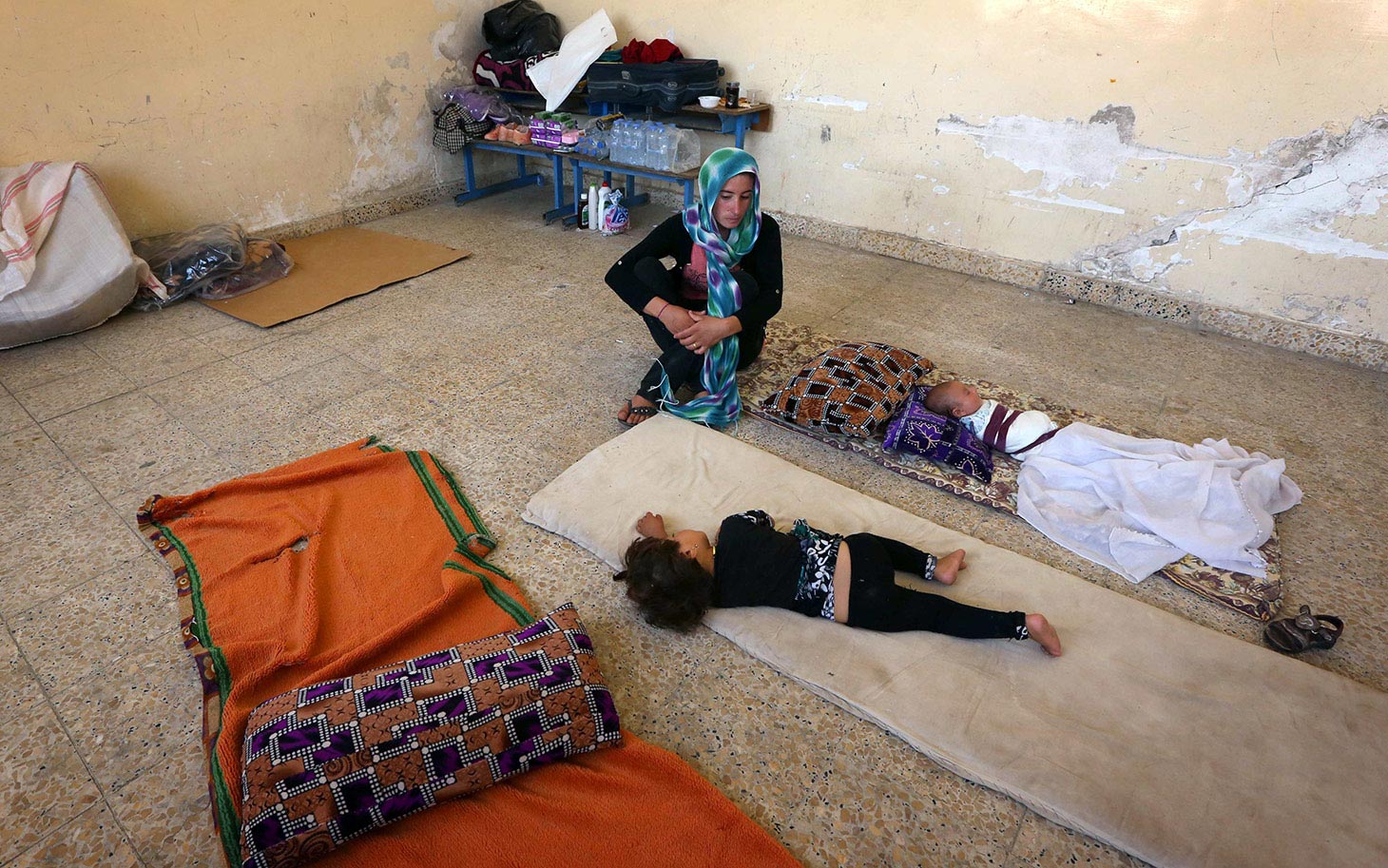
An Iraqi Yazidi mother who fled the violence in the northern Iraqi town of Sinjar, sits with her children at a school where they are taking shelter in the Kurdish city of Dohuk in Iraq's autonomous Kurdistan region, on August 5, 2014 (Photo Credit: Safin Hamed/AFP/Getty Images)
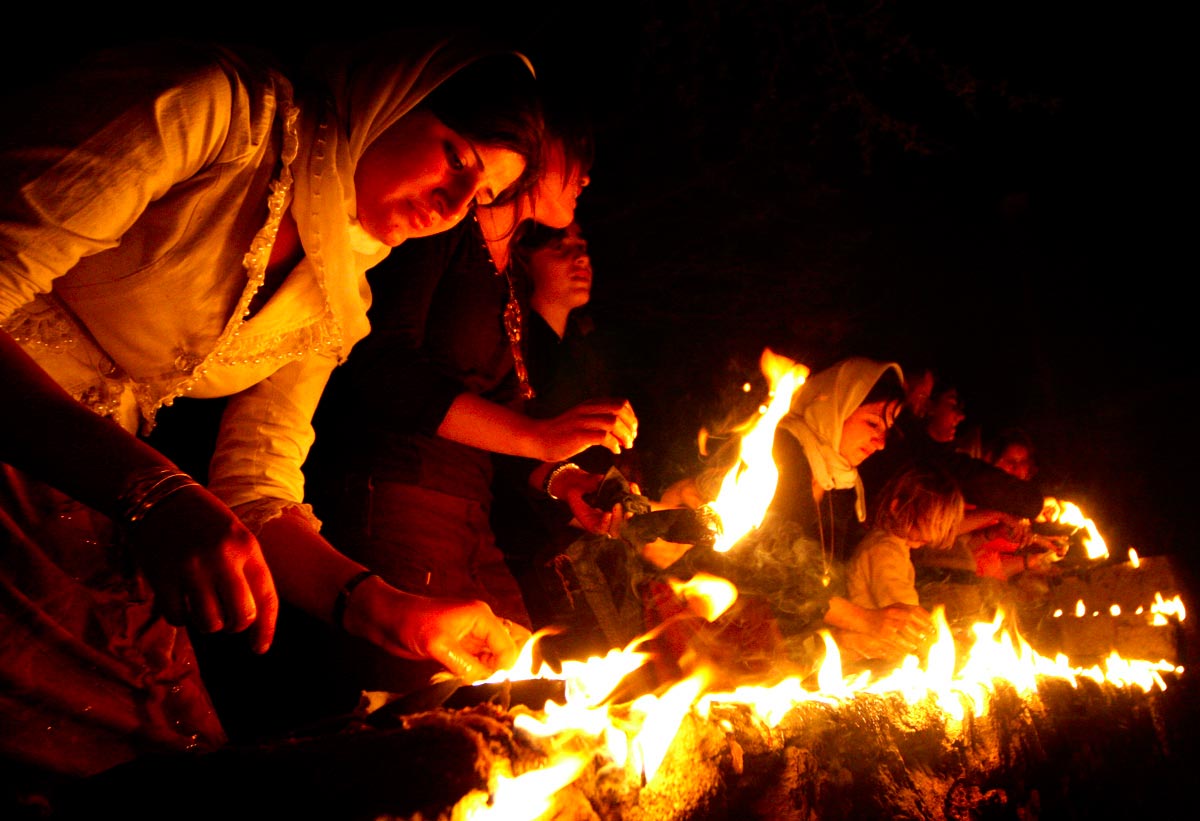
Yazidis celebrate New Year in Iraq (Photo Credit: Al Jazeera)
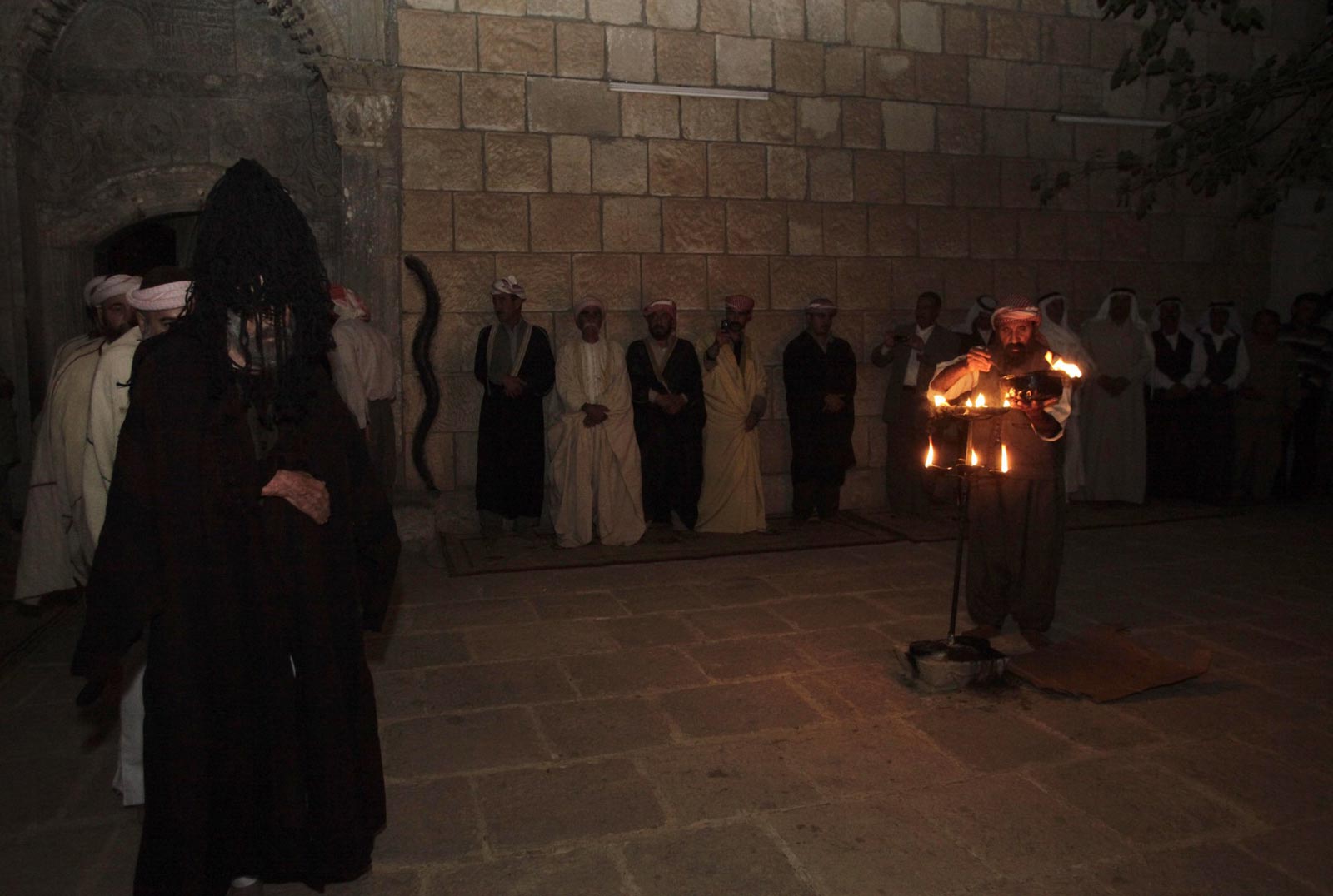
Yazidi worshippers engaging in a prayer ceremony during Eid al-Jamma. (Photo Credit: Business Insider)
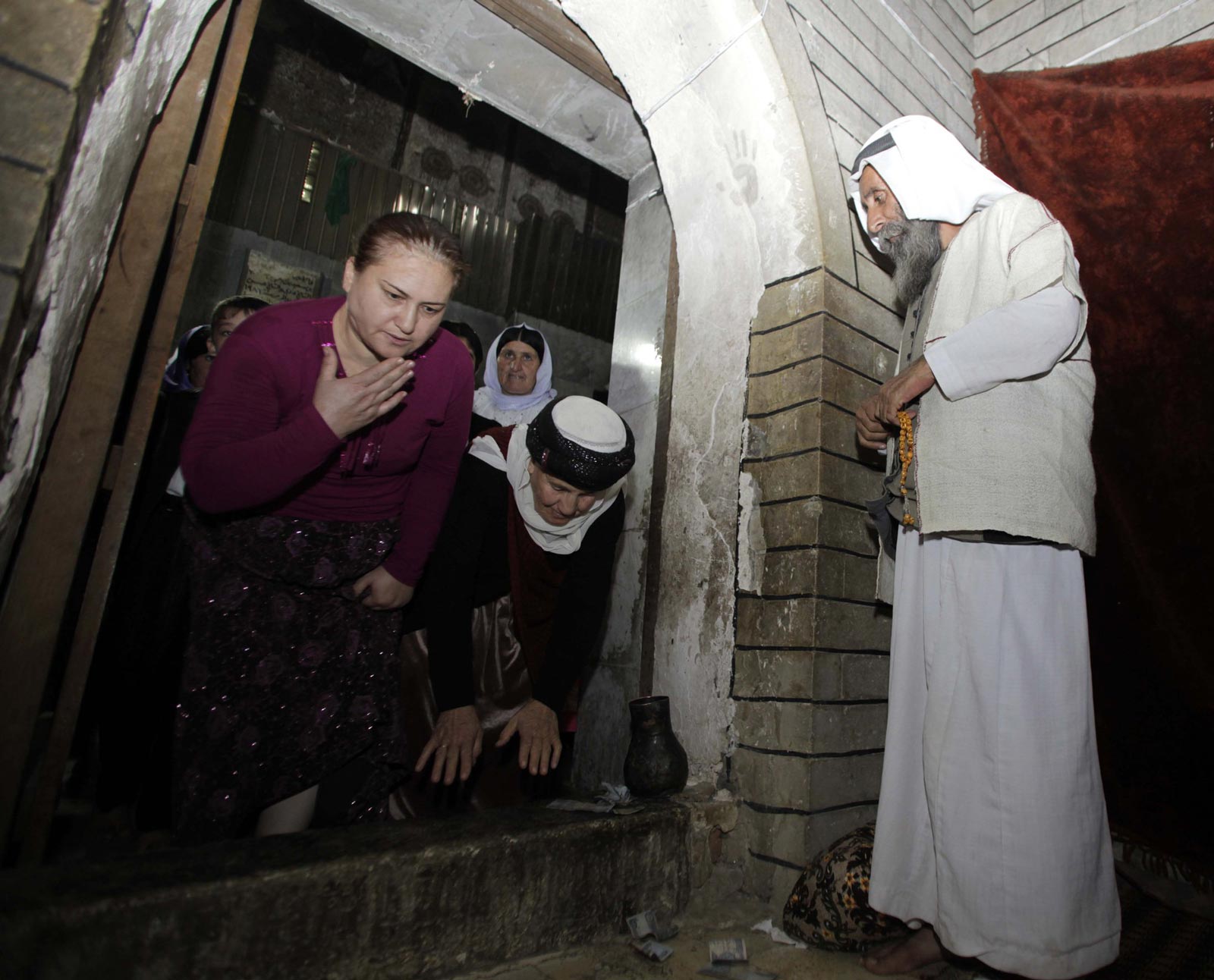
Here, Yazidis pay their respects within the Lalish temple. The Yazidis were victims of the worst terror attack of last decade's Iraq War, when suicide bombings killed more than 400 Yazidis in 2007. (Photo Credit: Business Insider)
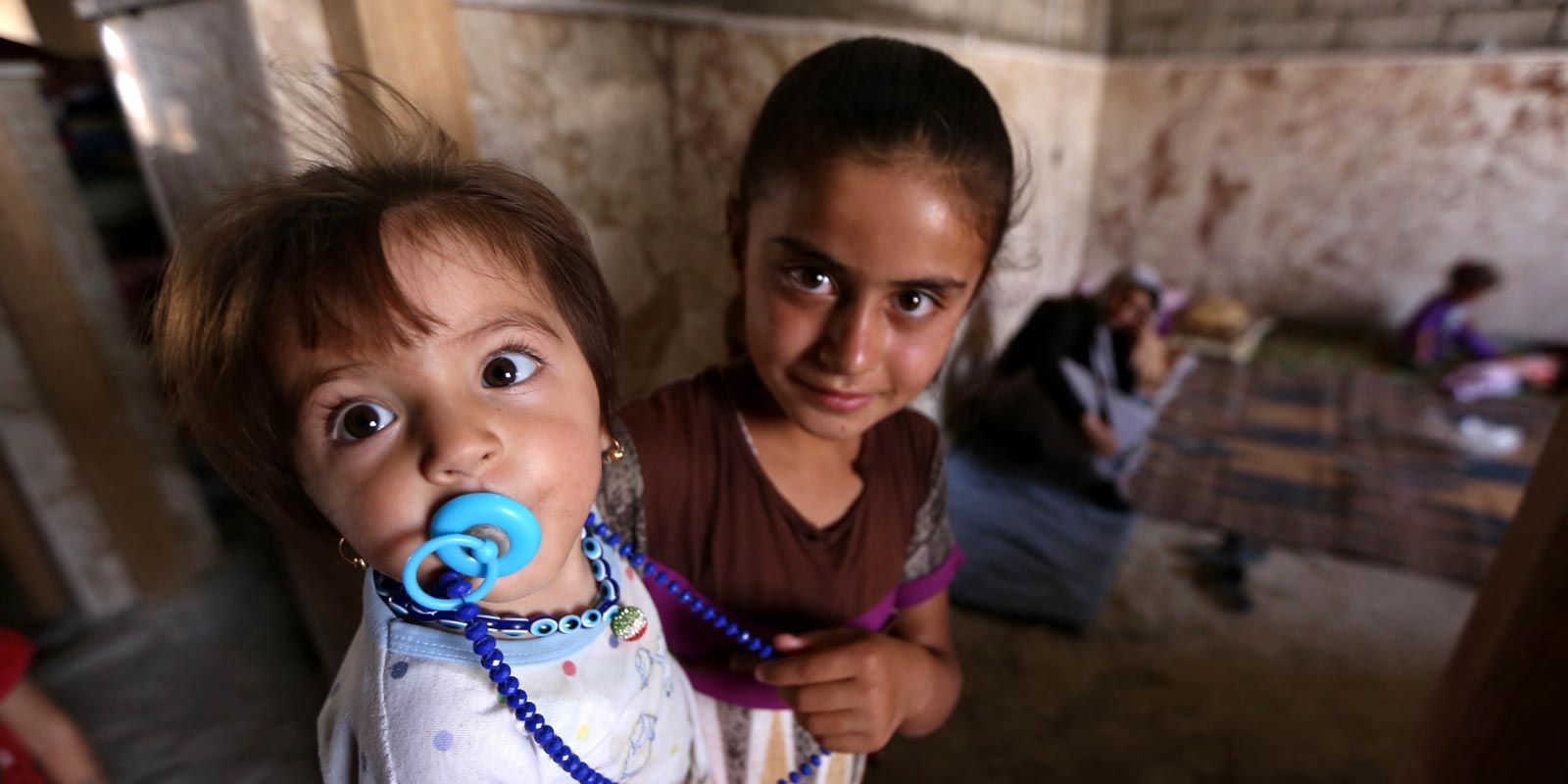
Yazidis girls fleeing from the violent sect, ISIS.
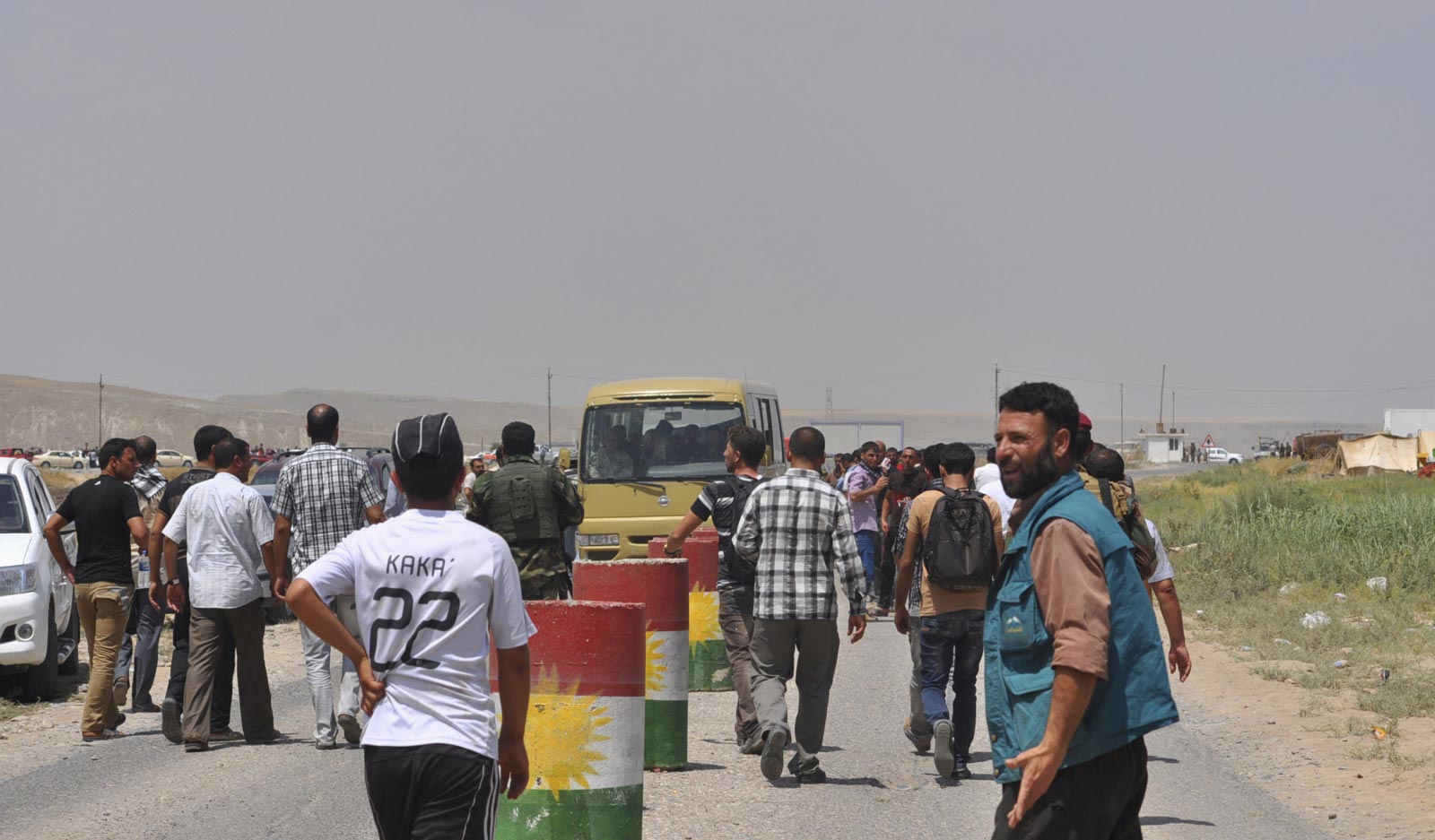
Displaced families from the minority Yazidi sect, fleeing the violence, walk on the outskirts of Sinjar, west of Mosul (Photo Credit: Reuters)
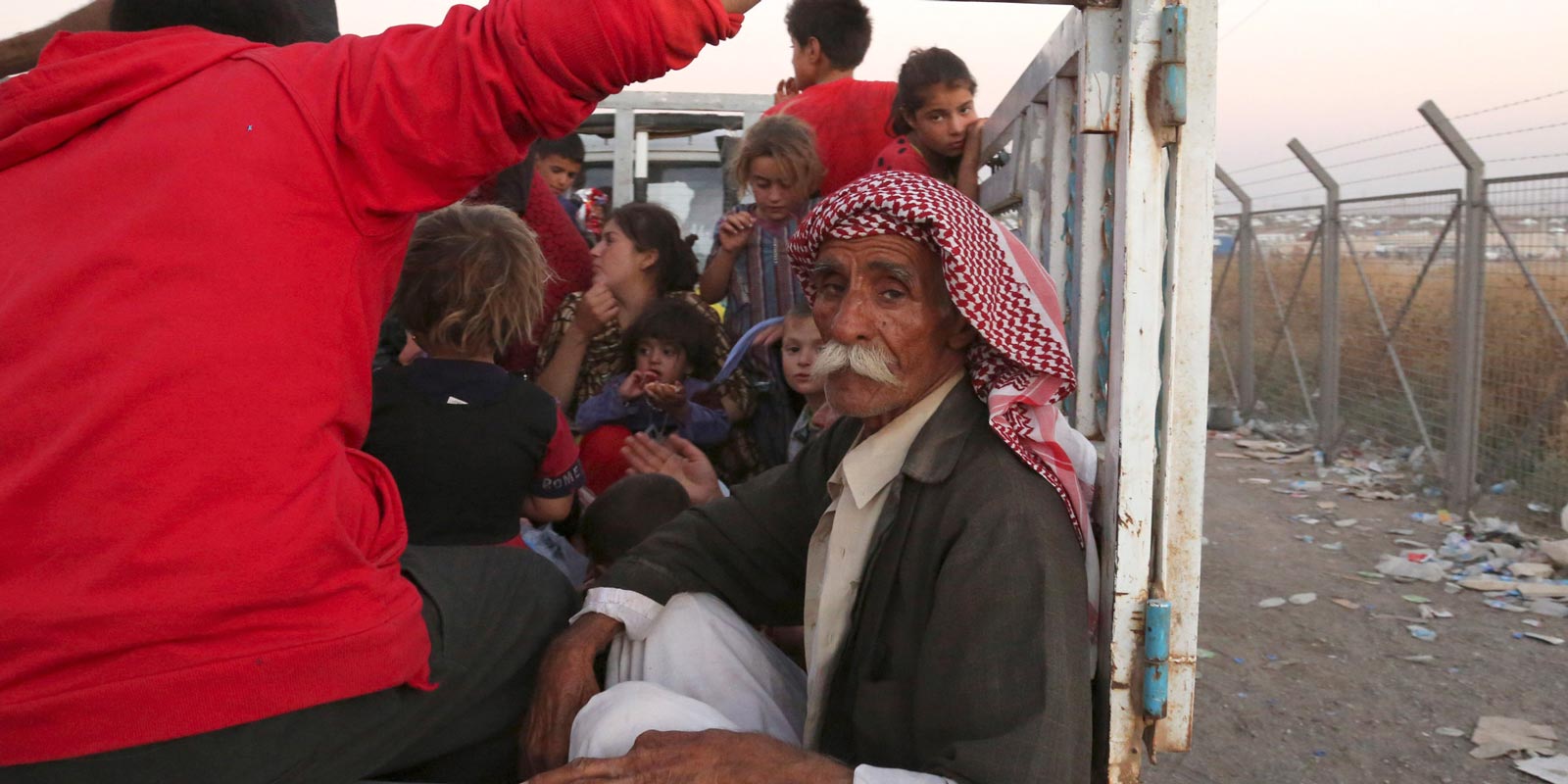
Displaced Iraqis from the Yazidi community arrive to the camp of Bajid Kandala at Feeshkhabour town near the Syria-Iraq border, in Iraq Saturday, Aug. 9, 2014. The displacement of at least tens of thousands of Yazidis- Kurdish speakers of an ancient Mesopotamian faith - means yet another Iraqi minority has been peeled away as extremists continue their sweep of Iraq, seizing territory they brutally administer. The Islamic State group fighters already caused the expulsion of Iraq’s Christians, (Photo Credit: AP)
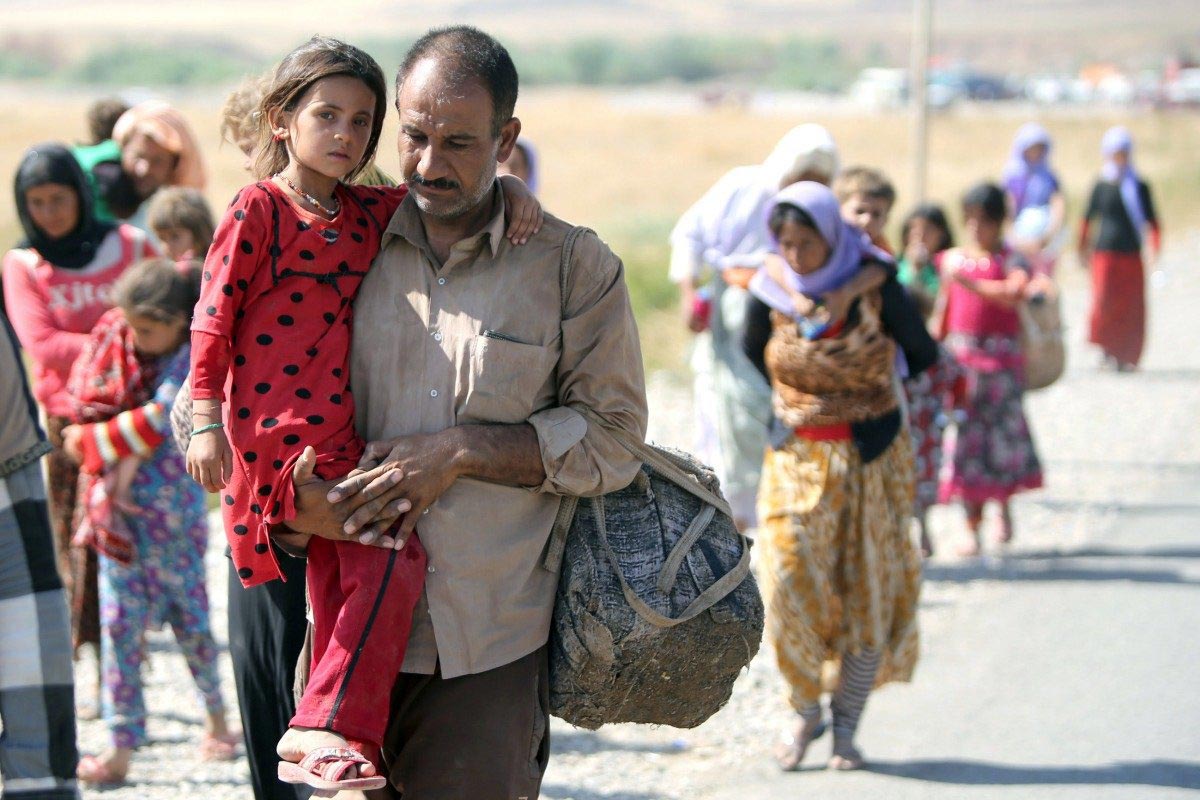
Displaced Iraqis from the Yazidi community arrive to the camp of Bajid Kandala at Feeshkhabour town near the Syria-Iraq border, in Iraq Saturday, Aug. 9, 2014. The displacement of at least tens of thousands of Yazidis- Kurdish speakers of an ancient Mesopotamian faith - means yet another Iraqi minority has been peeled away as extremists continue their sweep of Iraq, seizing territory they brutally administer. The Islamic State group fighters already caused the expulsion of Iraq’s Christians, (Photo Credit: AP)
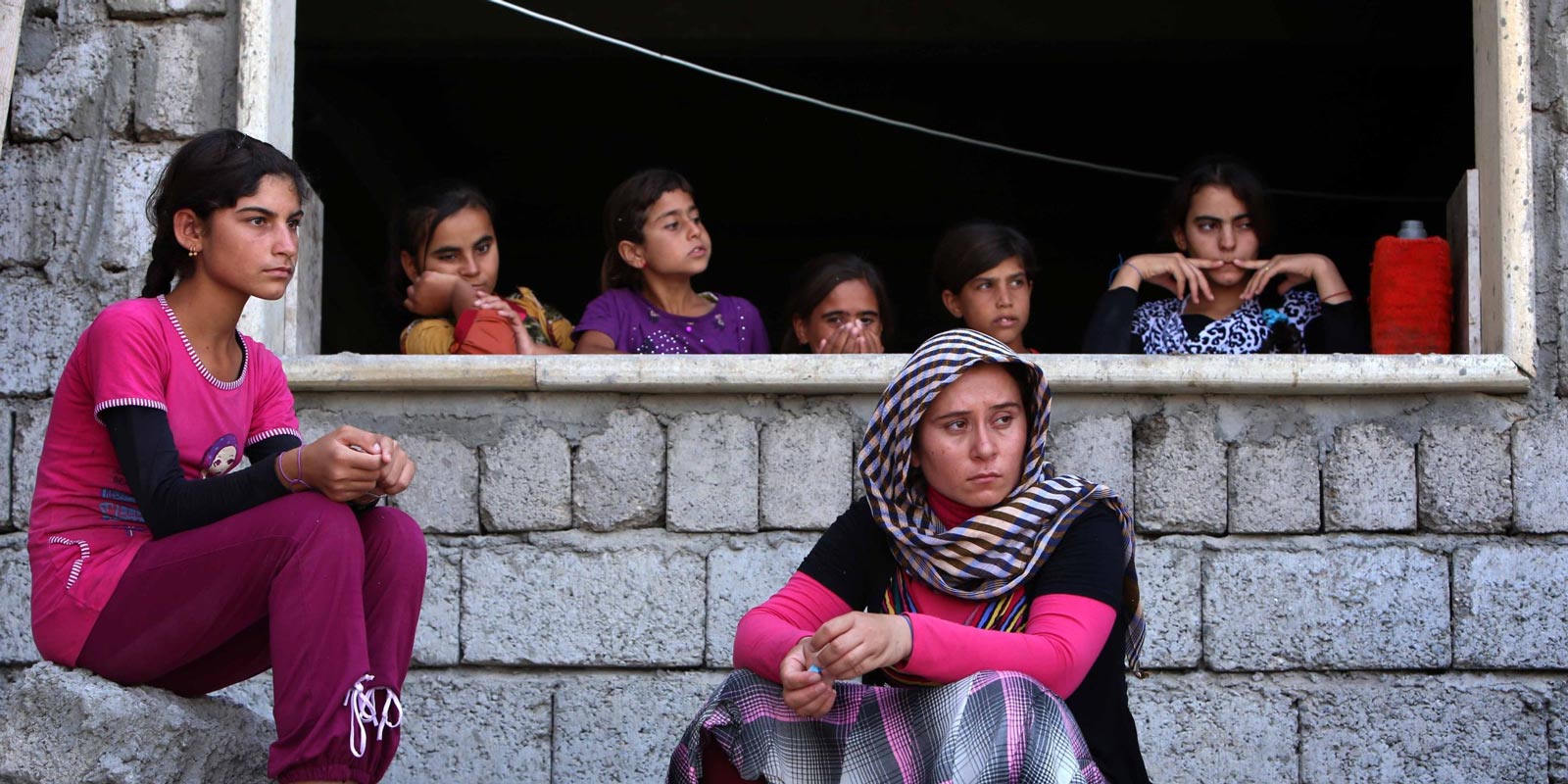
Yazidi women who fled violence in the northern Iraqi town of Sinjar sit at a school where they are taking shelter in Dohuk on August 5, 2014. (Photo Credit: SAFIN HAMED/AFP/Getty Images)
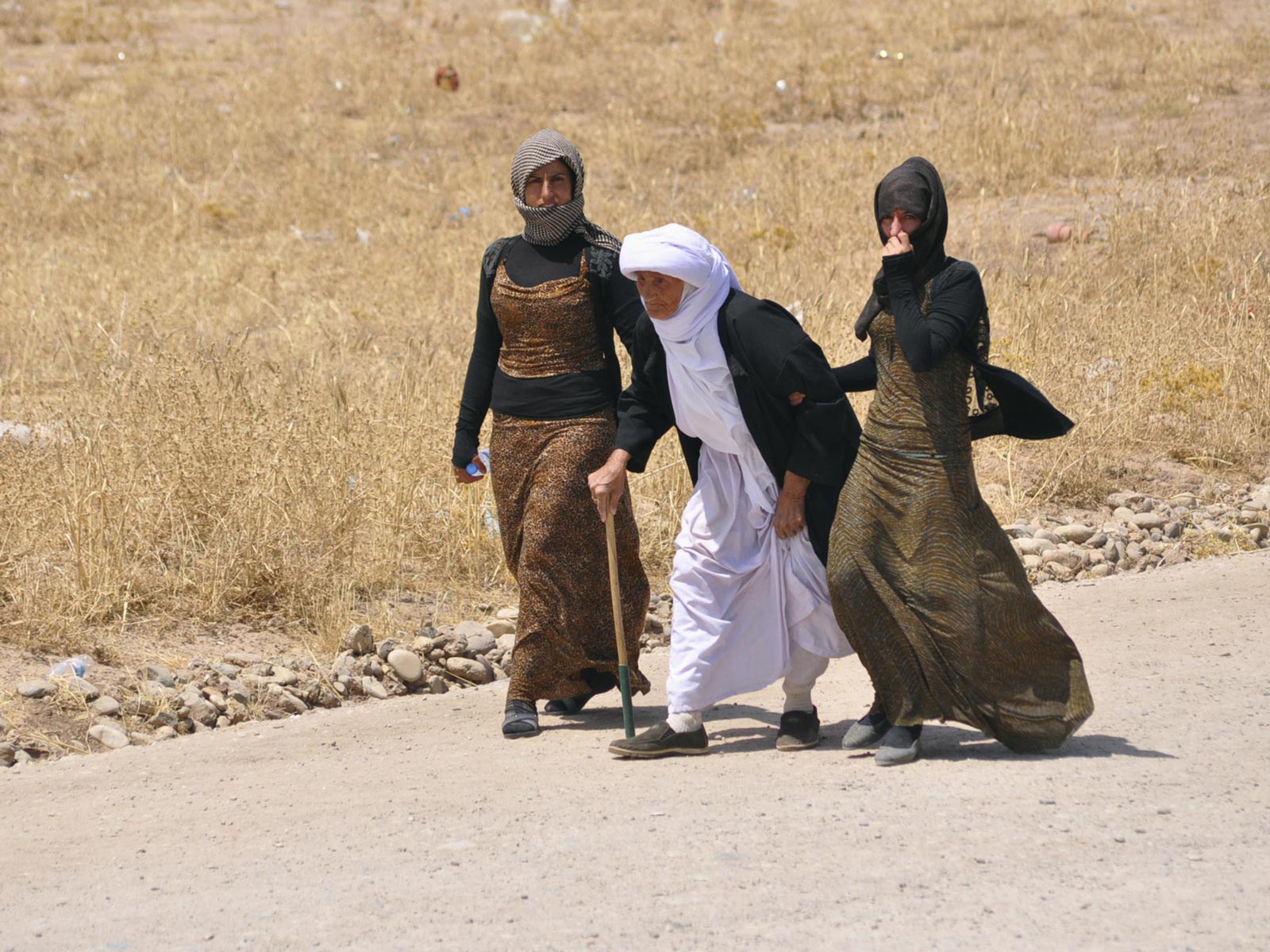
A displaced family from the minority Yazidi sect flees the violence in Sinjar, Iraq, west of Mosul, on Tuesday. Tens of thousands fled the weekend assault on Sinjar and are now surrounded, according to witnesses and the United Nations.
(Photo Credit: Reuters/Landov)
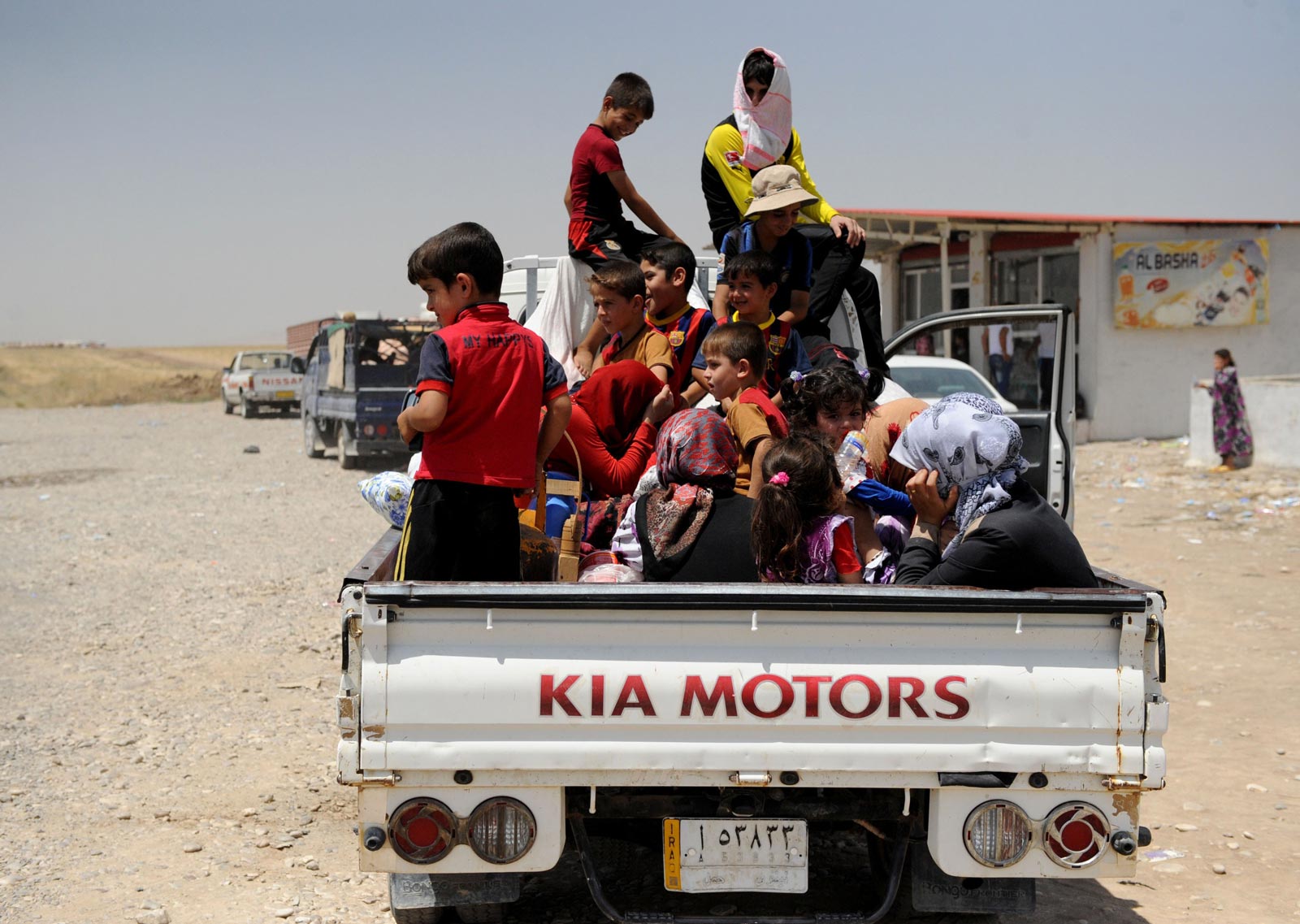
Iraqi Yazidis flee from Sinjar due to attacks of army groups led by Islamic State (IS) to Lalesh enshrined Kurdish city of Dohuk, Iraq on August 5, 2014. (Photo Credit: Hamit Huseyin/Anadolu Agency/Getty Images)
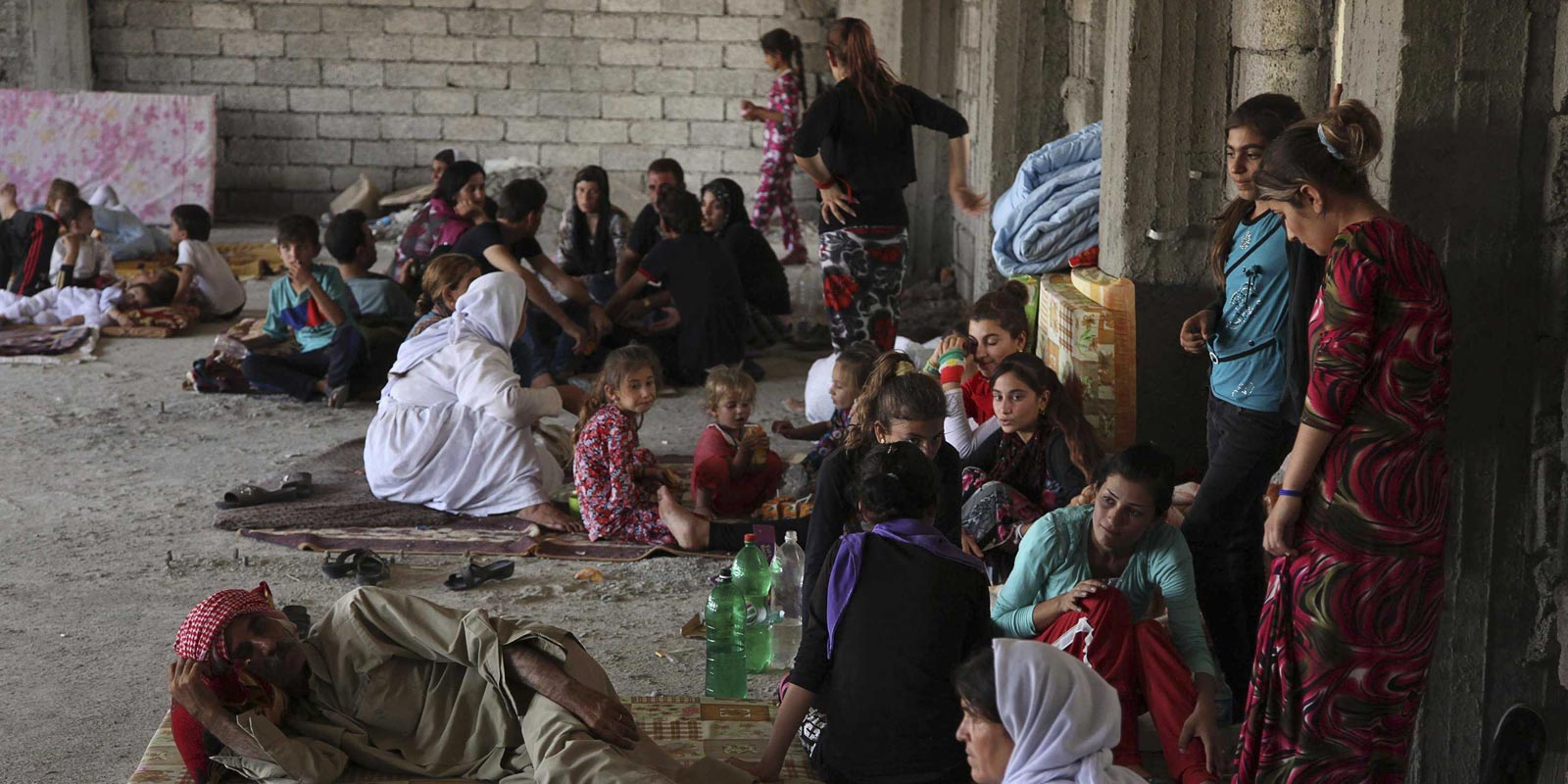
Displaced families from the minority Yazidi sect, fleeing the violence in the Iraqi town of Sinjarl west of Mosul, take refuge at Dohuk province on August 4, 2014 (Photo Credit: Reuters)
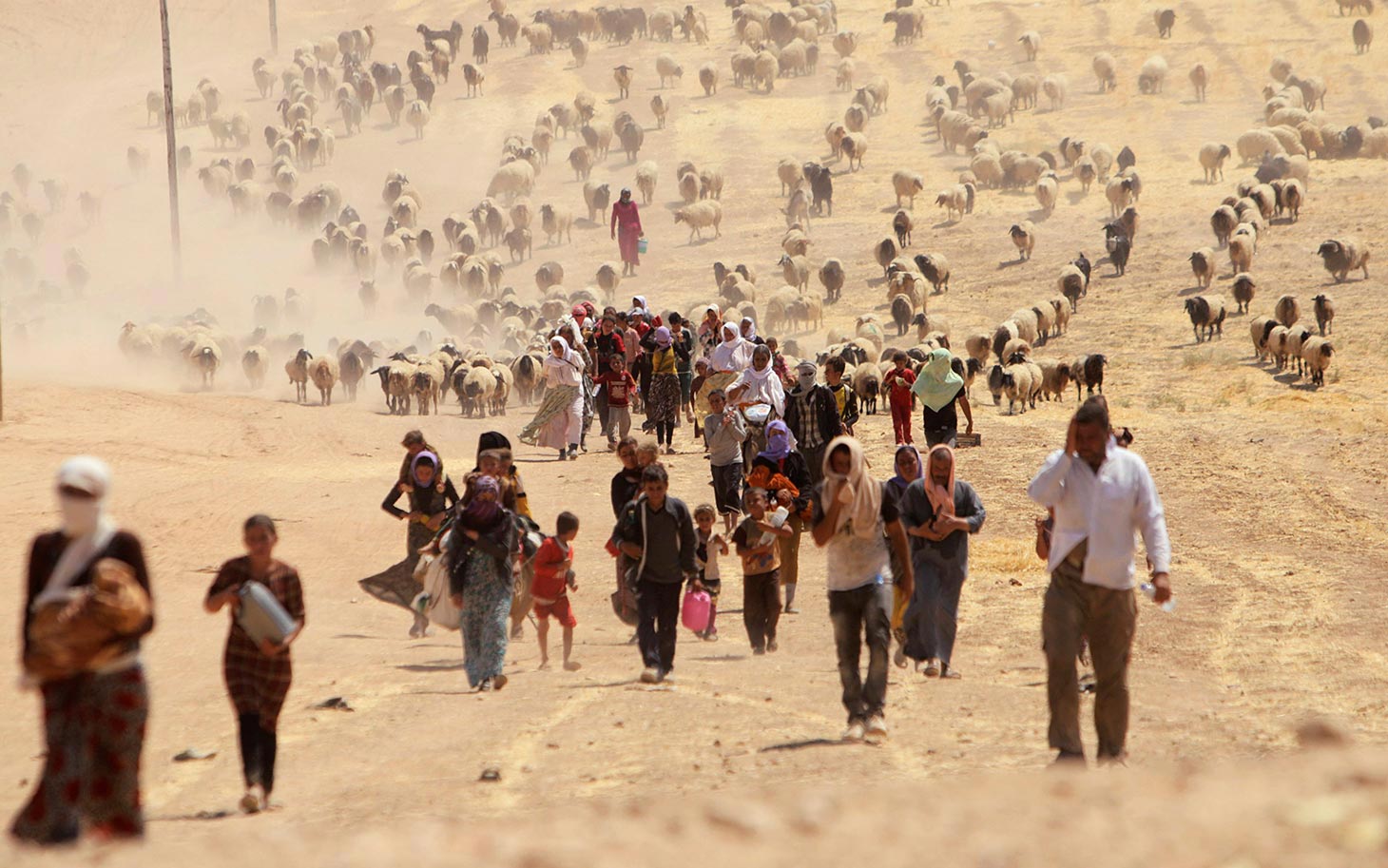
Members of the minority Yazidi sect walk towards the Syrian border as they flee violence from forces loyal to the Islamic State, August 10, 2014. Thousands from the group have left their homes to seek safety. (Photo Credit: Rodi Said / Reuters)
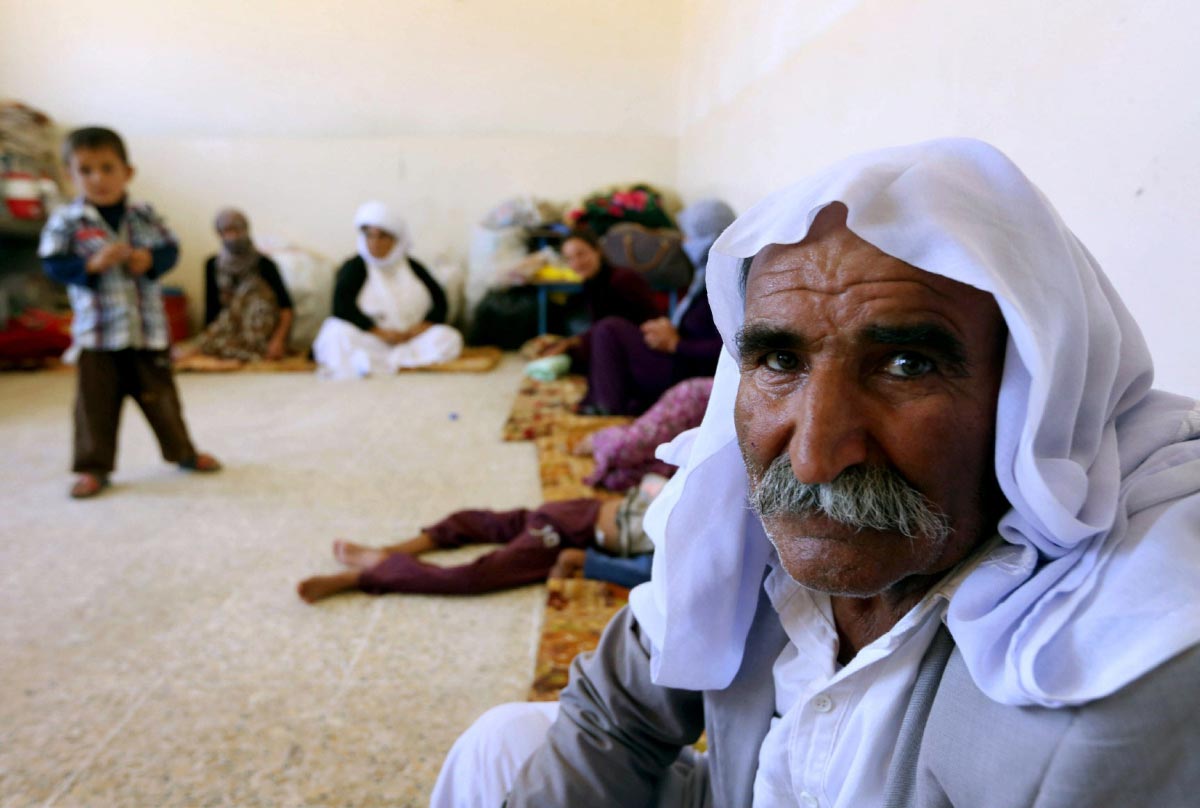
A Yazidi family that fled violence in northern Iraq sits at at a school where they are taking shelter in the Kurdish city of Dohuk on August 5, 2014. (Photo Credit: SAFIN HAMED/AFP/Getty Images)
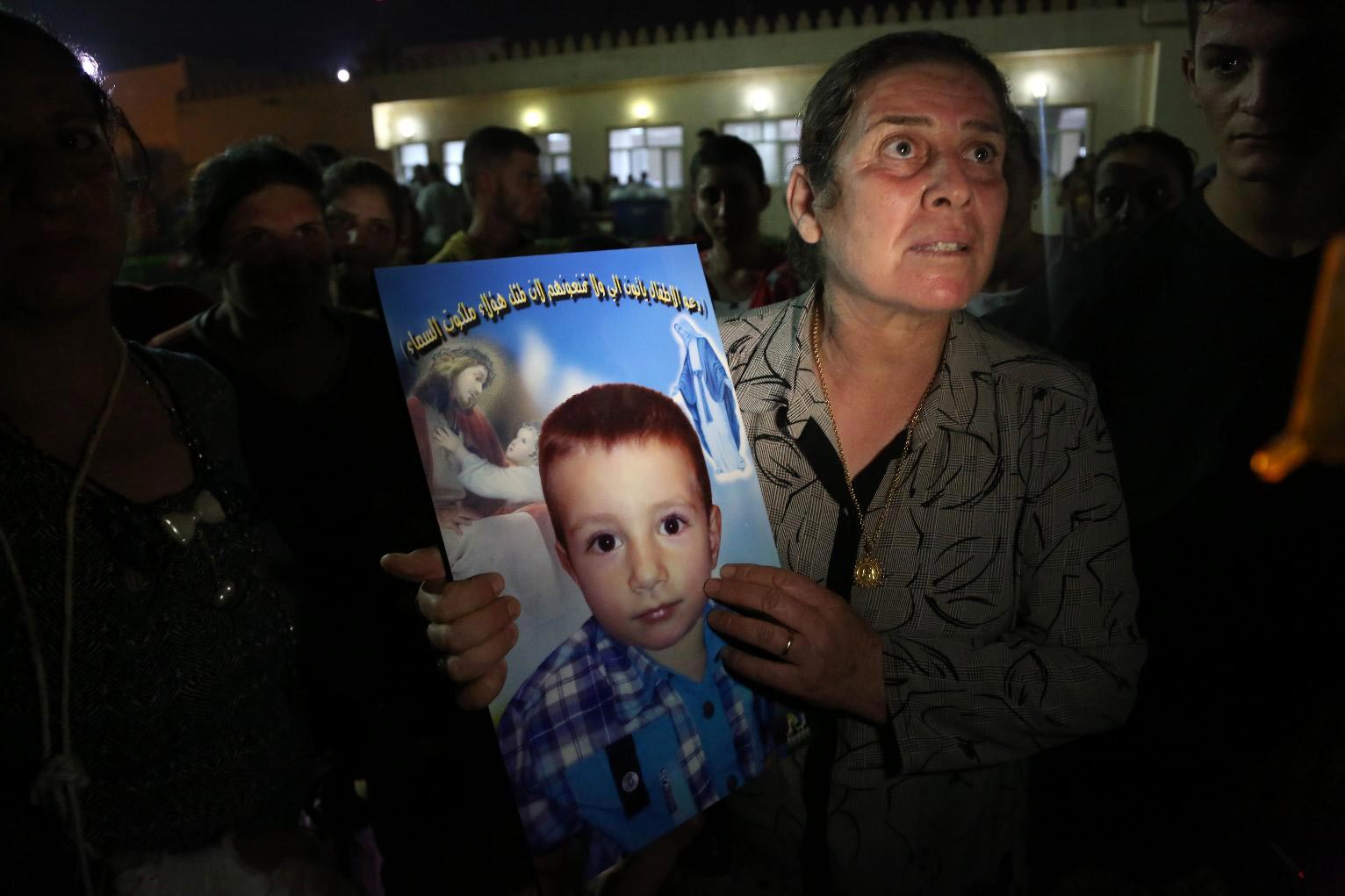
A displaced Iraqi Christian woman holds a picture of her four-year-old relative, David, who was killed by militants. (Photo Credit: US News)
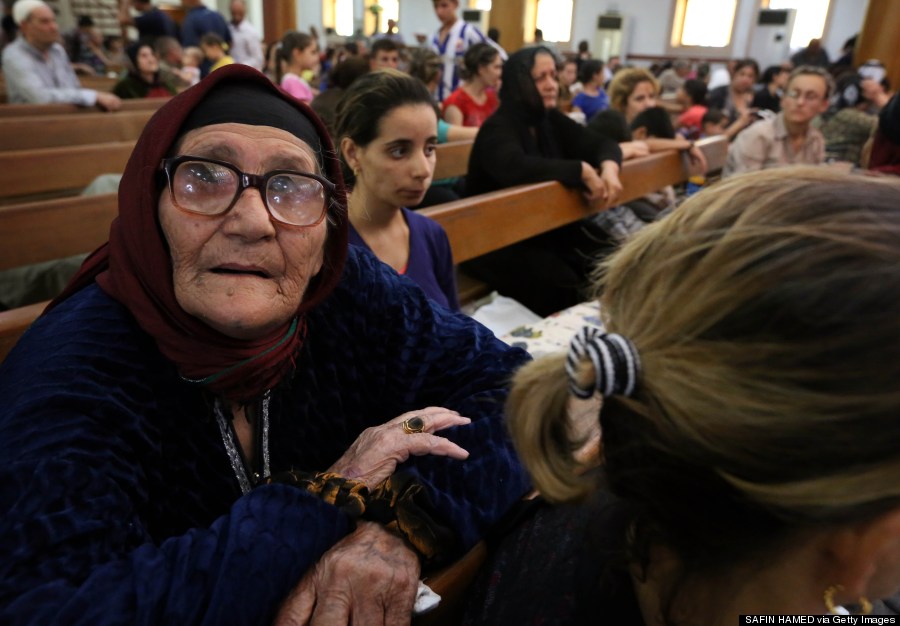
Iraqi Christians who fled the violence in the village of Qaraqush, about 30 kilometres east of the northern province of Nineveh, rest upon their arrival at the Saint-Joseph church in the Kurdish city of Arbil, in Iraq's autonomous Kurdistan region, on August 7, 2014. Gunmen from the Sunni Muslim Islamic State (IS) seized Qaraqush, Iraq's largest Christian town, and several others near Mosul following the withdrawal of Kurdish peshmerga fighters, inhabitants said. (Photo Credit: SAFIN HAMED/AFP/Getty Images)
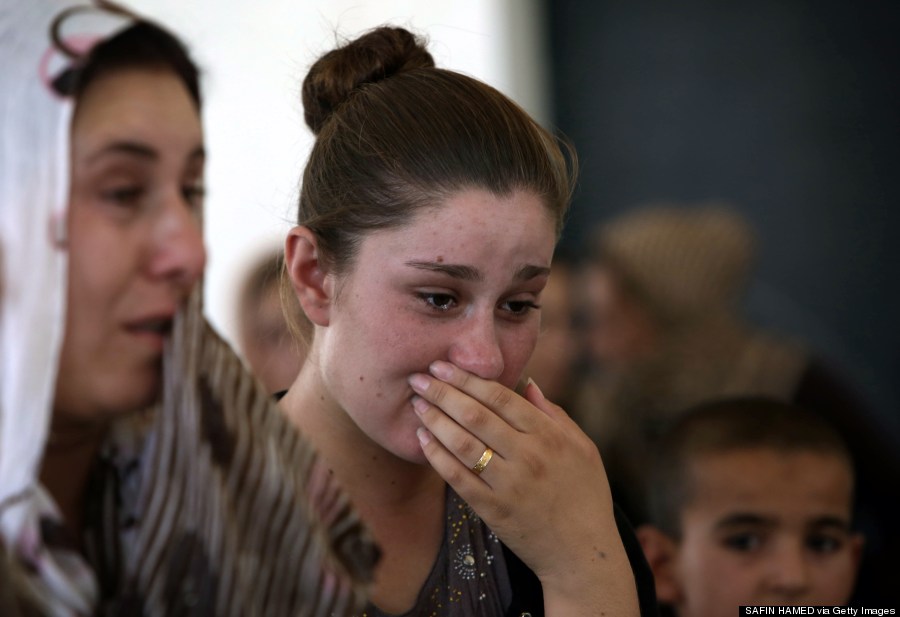
An Iraqi Yazidi woman who fled the violence in the northern Iraqi town of Sinjar, cries as she stands among others at a school where they are taking shelter in the Kurdish city of Dohuk in Iraq's autonomous Kurdistan region, on August 5, 2014. Islamic State (IS) Sunni jihadists ousted the Peshmerga troops of Iraq's Kurdish government from the northern Iraqi town of Sinjar, forcing thousands of people from their homes. The Yazidis, are a small community that follows a 4,000-year-old faith and have been repeatedly targeted by jihadists who call them "devil-worshipers" because of their unique beliefs and practices. (Photo Credit: SAFIN HAMED/AFP/Getty Images)
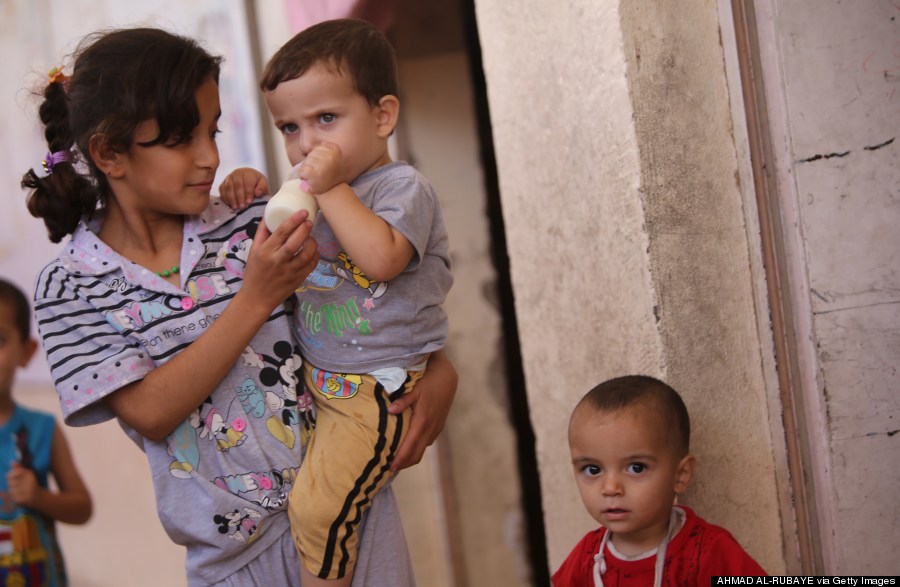
Iraqi Turkman Shiite children displaced from the northern Iraqi area of Tal Afar take shelter in a school in Sadr City, one of Baghdad's northern Shiite-majority districts, on August 5, 2014 after fleeing fighting between the Islamic State (IS) militants and Kurdish forces in both Tal Afar and later in Sinjar. Baghdad's air force and Kurdish fighters from Syria joined forces with Iraq's embattled peshmerga to push back jihadists whose latest attacks sent thousands of civilians running for their lives. (Photo Credit: AHMAD AL-RUBAYE/AFP/Getty Images)
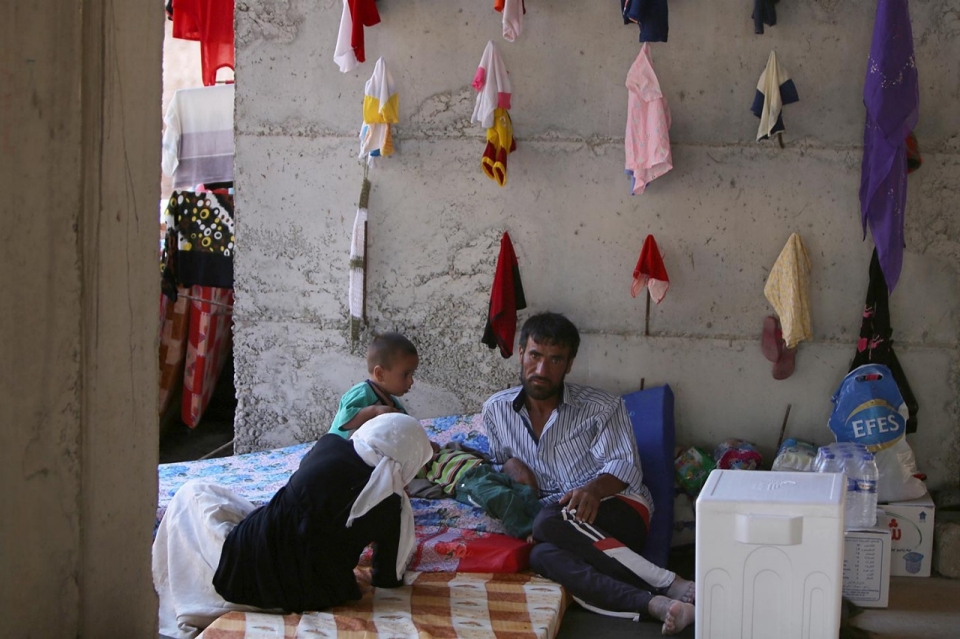
Yazidi families adapt to the difficult circumstances at the construction site. (Photo Credit: Ahmad Al-Rubaye / AFP / Getty Images)
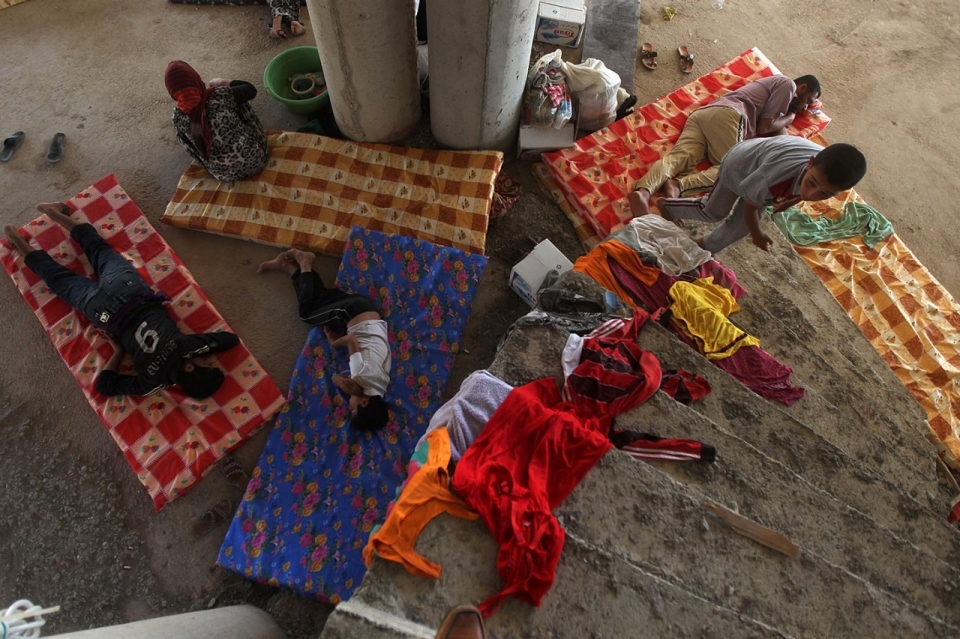
A scene inside the building under construction where the Yazidis have taken refuge. (Photo Credit: Ahmad Al-Rubaye / AFP / Getty Images)
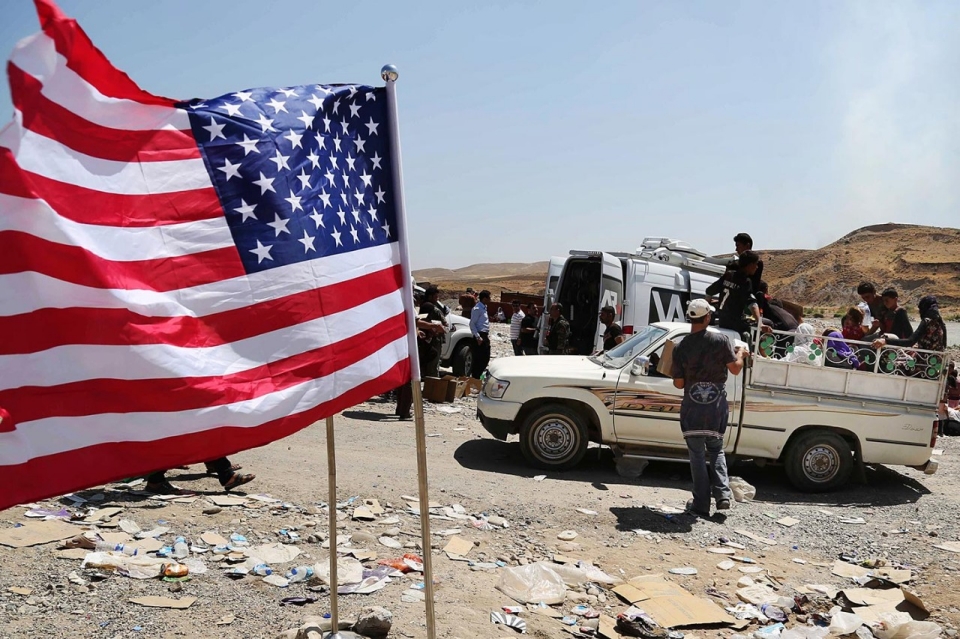
A U.S. flag waves while displaced Iraqis from the Yazidi community cross into Syria. (Photo Credit: Khalid Mohammed / AP)
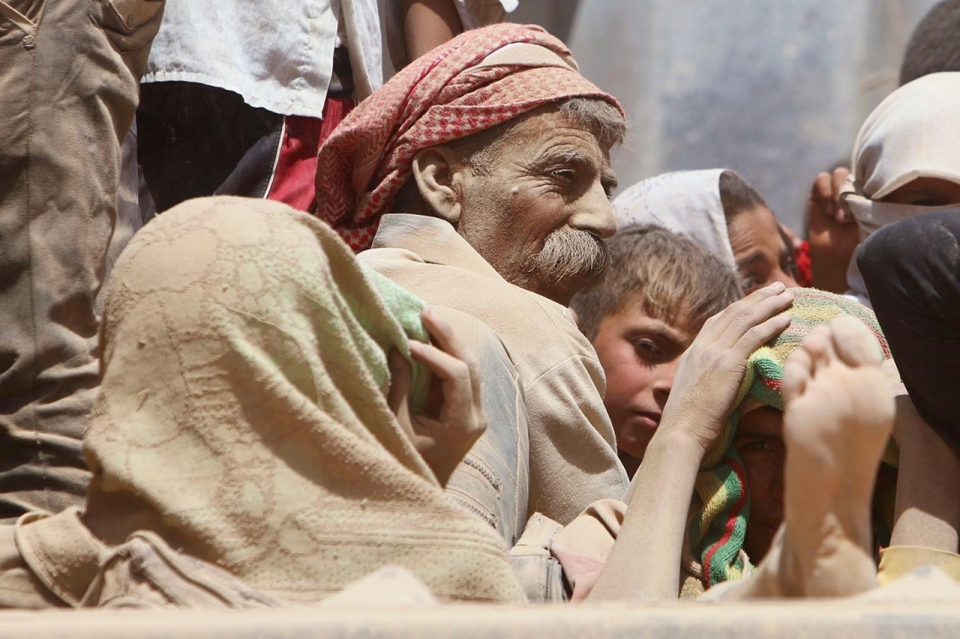
Yazidis fleeing violence ride in the back of a truck toward the Syrian border. (Photo Credit: Rodi Said / Reuters)
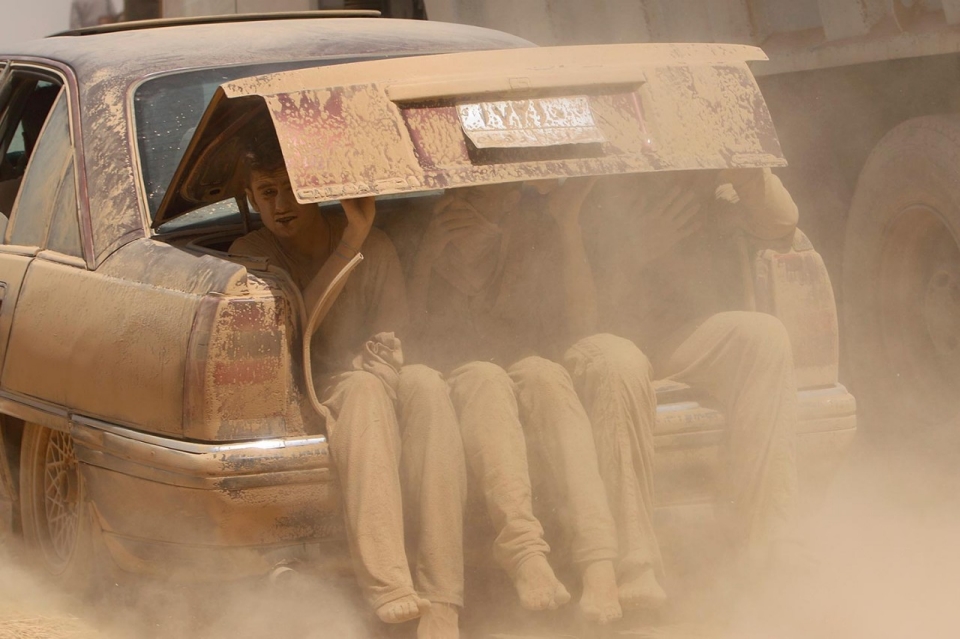
Young Yazidis sit in the trunk of a car. Iraqi officials say that hundreds of members of the sect have been killed by forces loyal to Islamic state. (Photo Credit: Rodi Said / Reuters)
All this predated the Islamic State.
One priest, himself ransomed for $85,000 in Baghdad seven years ago, said a Muslim acquaintance once warned him, “Saturday’s gone. Why are you still here on Sunday?” His meaning was that Jews, who worship on Saturdays, had fled Iraq long ago, so why were the Christians still there?
Indeed, the exodus of Christians is ongoing. Has anyone noticed that the Christian population of Iraq has shrunk from more than 1 million in 2003 to maybe 300,000 today? Now, there are virtually no Christians left in either Mosul or on the plain.
So when I ask refugees their plans, it is unanimously to leave Iraq altogether. Enough is enough. This runs counter to the desire, expressed mostly outside Iraq, that a Christian presence be preserved in a land that has known Christianity for 2,000 years. It’s sad but true: Christianity in Iraq is finished. As one refugee told me, “We wanted Iraq. Iraq doesn’t want us.”
Humanitarian aid, mentioned by Obama, is fine and necessary. But the broader problem faced by refugees — the fact that Christians and other minorities will likely never return to Iraq — is left unaddressed.
The United States and Europe both have provisions for providing temporary protection to refugees who can’t go home; it falls short of asylum but nonetheless can provide people with economic help to get them on their feet while keeping open the possibility, unlikely as it seems, of returning to Iraq. France has already taken a couple of planeloads of Christians out of Kurdistan. Much more is needed. Western countries ought to come together and offer refuge to the tens of thousands who want to leave Iraq.
Yes, this would mean the end of Christianity in this part of the world, where its presence has often served as a bulwark against fanaticism. But it’s over anyway, whatever happens to the Islamic State. It’s time to face that fact and save the Christians themselves.
Daniel Williams is a former senior researcher at Human Rights Watch and Post correspondent. This article was first published in the Washington Post.
The opinions expressed in this article are solely those of the author.
Like this:
Like Loading...



